Textos
© by Ricardo da Costa © 1995-2024
All rights reserved.
© by Ricardo da Costa © 1995-2024
All rights reserved.
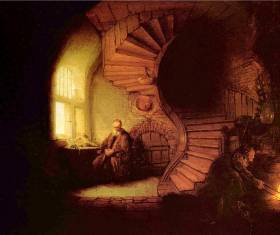
86
The theological character of Greek philosophy, particularly in Plato, Aristotle and Seneca, to conclude to, in its transcendental aspect, medieval philosophy did nothing more than enhance and deepen this particularity philosophical, but essential, of Greek thought.
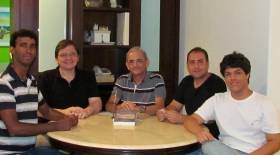
85
Interview with Ricardo da Costa about the novel of chivalry Curial e Guelfa.
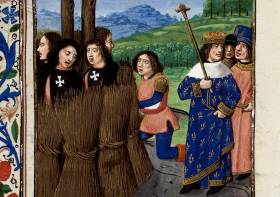
84
Analysis of the papal bull Vox in excelso (1312), regarding the actions of Pope Clement V in the process of the Templar’s.
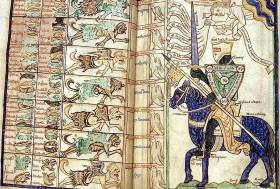
83
Presentation to the Brazilian academic community of the translation of the novel of chivalry Curial e Guelfa held under the direction of IVITRA. Its content, style, and our proposed of translation.
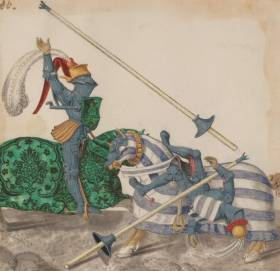
82
The work analyses the historic possibilities by utilization of literary texts. For that, approaches the novel of chivalry from the fifteenth century Curial e Güelfa, prose considered one of the jewels by Catalan Humanism.
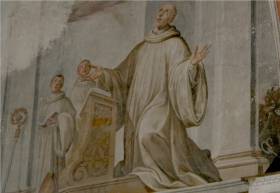
81
The concept of Love (anda their degrees to God) in the mystic contemplation of Bernard of Clairvaux, especially based on the Letter 11 by your Epistolary, but also in his sermons on the Canticle of Canticles and in the work De Diligendo Deo.
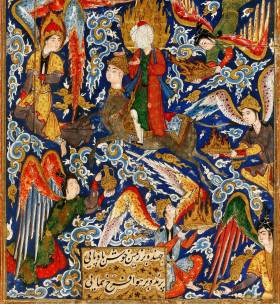
80
How the philosopher Ramon Llull depicted of Muhammad and the Qur'an in his writings, showing the Prophet as a man unclean, possessed, epileptic and misleading, and the Qur'an as a work confusing, misleading and filled falsehoods and lusty songs.
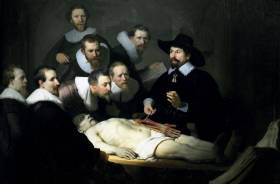
79
What exactly is the profession of the historian? How reliable is what we produce? After all, what is History? Our purpose is to defend History as Art, and that our historical comprehension should be based on analysis of the sources, never forget that the pursuit of the historian is the search for truth.
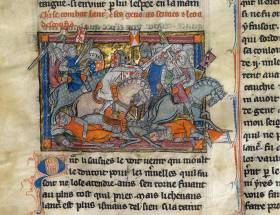
78
Presentation of the translation of the chivalry's novel Curial Guelfa.
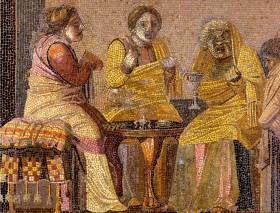
77
The end of the Ancient World and the formation of social, cultural and economic conditions that gave rise to the medieval society.
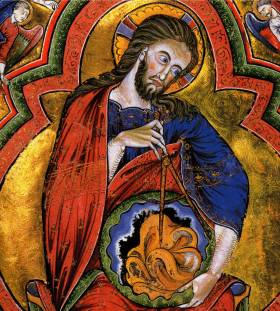
76
The divinity of the De sex dierum operibus of Theodoric of Chartres (†c.1155).
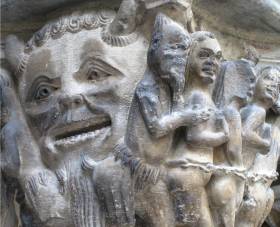
75
Hell and Heaven in Doctrine for Children, by Ramon Llull.
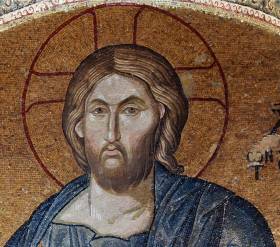
74
The metaphysical theme of the divine attributes exposed by St. Bernard de Clairvaux in his book De consideratione, written to Pope Eugene III at his request.
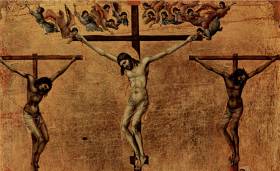
73
The concept of Eternity in the Ramon Llull’s philosophy from the works Fèlix o Llibre de meravelles, Arbor scientiae, Liber qui debet homo de Deo credere, Ars breuis, Liber correlatiuorum innatorum, Liber natalis pueri paruuli Christi Jesu and Liber de ciuitate mundi.
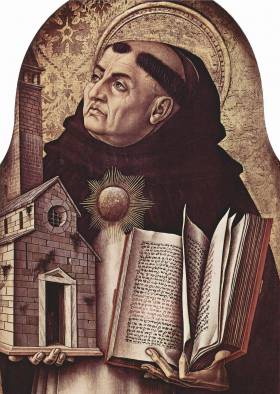
72
The thought of Thomas Aquinas about the legitimacy of military life and the concept of Just War, and its theological justification in the context of the Crusades, to the military orders.
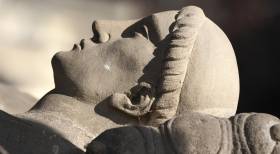
71
The theological disputatio Bernard of Clairvaux and Peter Abelard at the Council of Sens (1140).
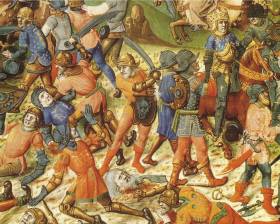
70
The Crusade’s propose, Conversion and the Theory of Two Swords in the philosophy of conversion of Ramon Llull, based on the poems Lo desconhort and Del consili, beyond the works Llibre de contemplació en Déu, Liber de passagio, Arbor scientiae, Liber de fine, Disputatio Petri clerici et Raimundi phantastici and Liber de ciuitate mundi.
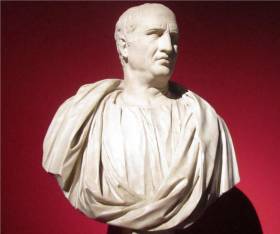
69
The Somnium Scipionis of Marcus Tullius Cicero: translation and analysis.
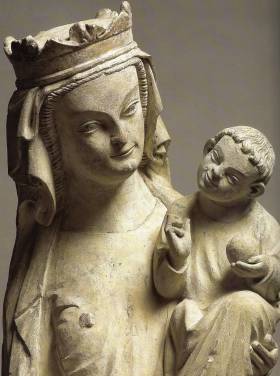
68
Beauty in Middle Ages and the philosophy of Ramon Llull.
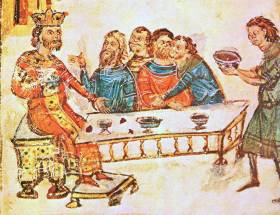
67
Preface to Mirabilia Journal 09 (2009)
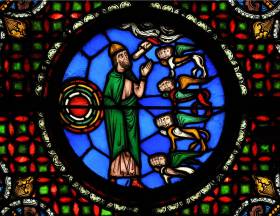
66
The Metaphysics of Light of Pseudo-Dionysius the Areopagite in the artistic conception of Abbot Suger of Saint-Denis.
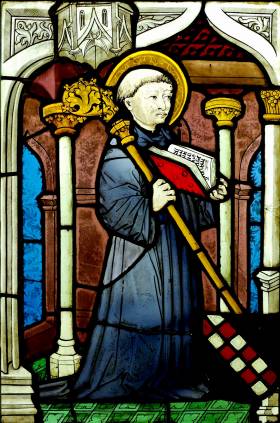
65
The concept of soul developed in mysticism of abbot Bernard of Clairvaux (1090-1153). For this, I will analyze extracts of five writings namely the Third Series of Sentences, three of his Liturgical Sermons, and the parabola The Three Children of the King.
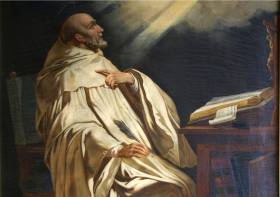
65
The concept of soul developed in mysticism of abbot Bernard of Clairvaux (1090-1153). For this, I analised extracts of five writings namely the Third Series of Sentences, three of his Liturgical Sermons, and the parabola The Three Children of the King.
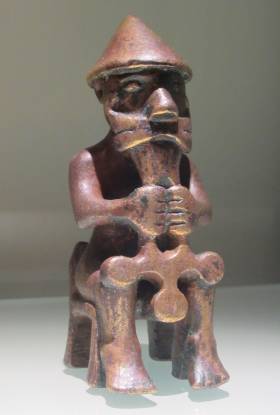
64
This work analyses the Íslendingabok (XII century) written by Ari Þorgilsson fróði (1069-1148), the Hungrvaca (c.1200-1206) and the Kristni Saga (c.1250-1284) in relation to the Icelandic 10th-13th centuries’ political context and the archaeological records. Our aim was to approach the progressive concentration of power by wealthy Icelandic farmers during the Middle Ages.
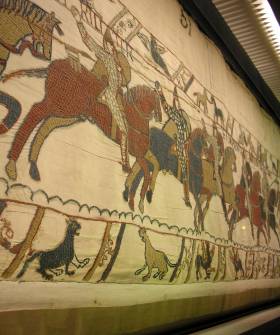
63
Brief story of the Bayeux Tapestry.
